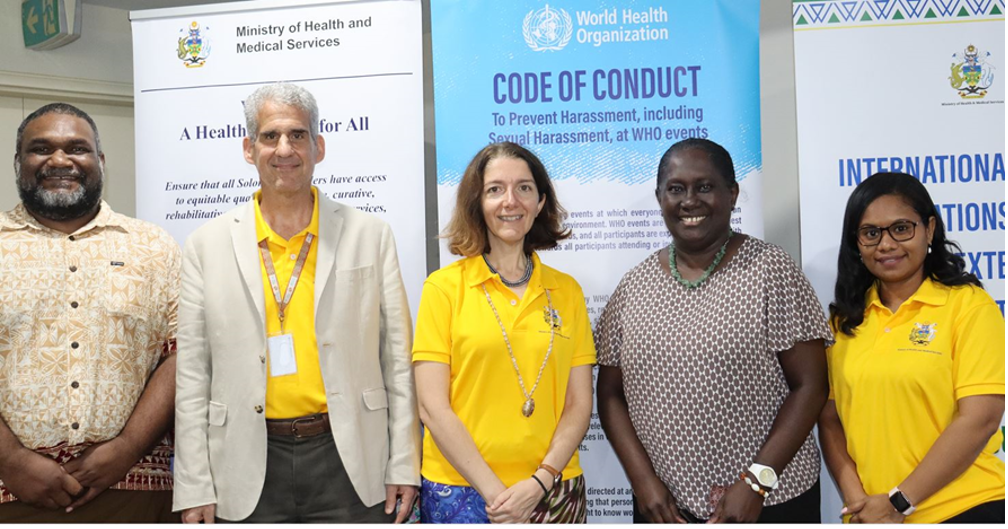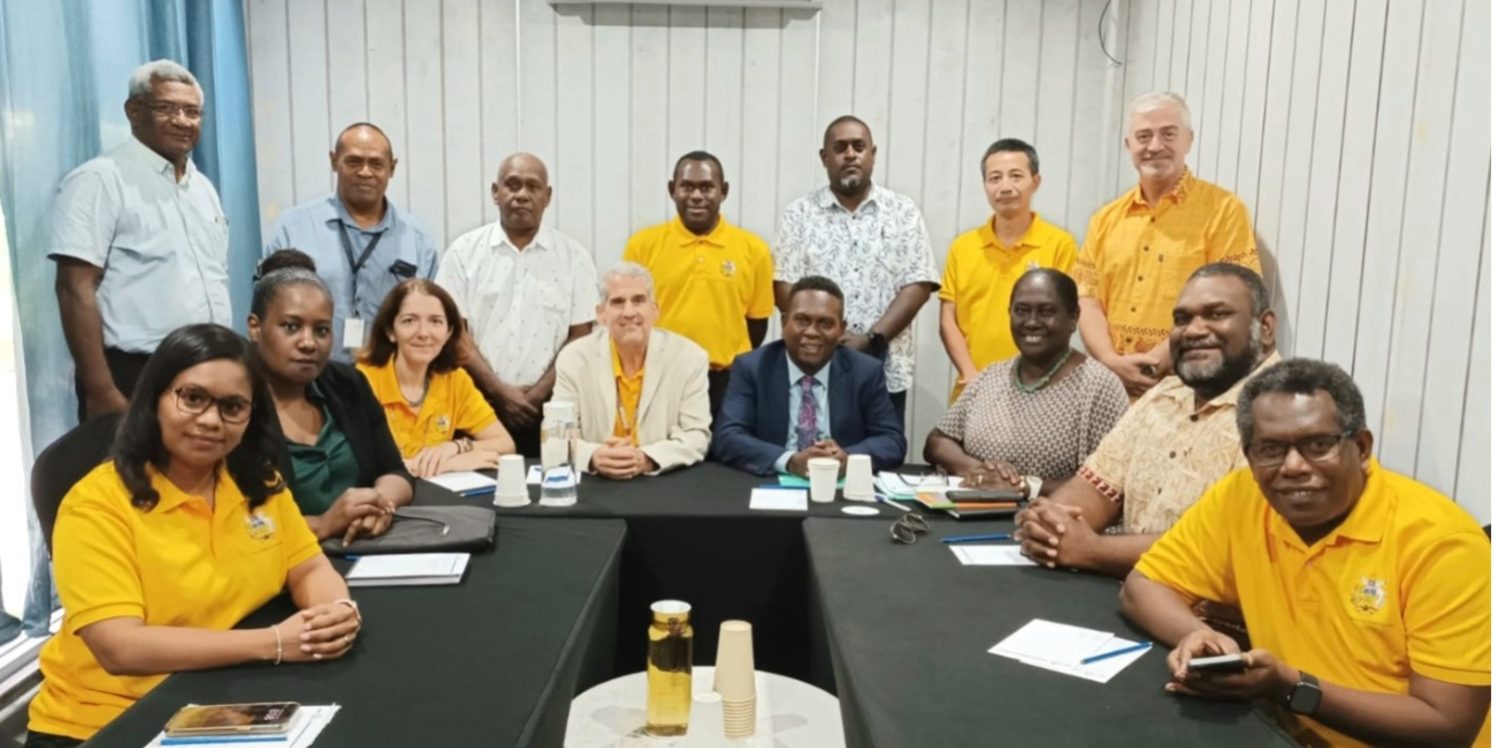The weeklong Joint External Evaluation on health emergencies conducted by both external and local experts wrapped up last Friday in Honiara with four overarching recommendations.
Last week 22 external experts from around the world, worked closely with National Technical Experts to review 19t technical areas of the International Health Regulations (IHR 2005).
The Joint External Evaluation (JEE) is a voluntary, collaborative, multisectoral process to assess country capacities to prevent, detect and rapidly respond to public health risks whether occurring naturally or due to deliberate or accidental events.
Team Leader of External Experts, and Regional Emergency Director WHO Health Emergencies, Gina Samaan presented the 4 overarching recommendations. Which were initially presented to the MHMS executive at a breakfast briefing before it was presented at the close of the workshop this.
The recommendations are as follows;
– That IHR had a home within the Ministry and that it’s implementation is interwoven into the work of the Ministry
– To develop a costed and financed national action plan on health security with a monitoring framework
– To establish a One Health coordination committee that drives development of a One Health Action Plan to address common priorities. Select a priority disease for integrated surveillance and use it to drive capacity strengthening on many technical areas eg influenza
– Sustain and expand the resilient facilities initiative to strengthen health security, by building on the momentum of current policy and legislation shifts. This also involves leveraging on technology and innovation and pathways that increase efficiency, eg waste management transportation patient triage, ventilation water and electricity supply
In response to the presentation, Supervising Minister for Health and Medical Services, the Hon. Ghemu, conveyed the Ministry’s appreciation for the debrief and acknowledged the four overarching recommendations presented by the review experts that resulted from the discussions, presentations and the ratings of the technical areas.
“I am in agreement with recommendation one, to the establish a multisectoral mechanism and/or empower an existing entity to advocate & coordinate IHR implementation for emergency response, prevention, preparedness and recovery.
“We recognize that the sensitization and domesticating the International Health regulations (2005) is indeed a priority.”
“On the second recommendation, the development of a National Action Plan for Health Security (NAPHS) that is costed and with a robust monitoring and evaluation framework is critical to enable making improvements and strengthening of our national capacity and capabilities on health security. I thank the International technical expertise for identifying our areas of weakness and gaps.
On recommendations 3, the establishment of the One Health coordination committee that drives the development of a One Health Joint Action Plan to address common priorities is also a must, he added.
“As you will have noted, there are adhoc piece meal work on One Health but given our context whereby resources are stretched.”
“We also acknowledge the final recommendation, but the Ministry is of the view that this recommendation must be aligned to the current review of the Role Delineation Policy (RDP), and the Infrastructure Investment Roadmap of the National Health Strategic Plan 2022-2031 said Minister Ghemu.

Meanwhile, addressing the JEE experts at a farewell dinner later on, Supervising Health Minister Ghemu emphasized on the commitment of all parties towards the work ahead.
“We must ensure to all commit to the work ahead of us against the resources and within our capacity and capabilities to implement.
“The JEE process is almost ending, and the Ministry of Health and its partner Ministries look forward to the final report of this process.
“Upon the receipt of the JEE report which hopefully is delivered before the end of the year, we must take stock of the recommendations aligned to our national frameworks and strategic documents, and ensure to translate these into tangible policies, programmes and actions that deliver results.
“In implementing these actions in the near future, we must be honest that we will all face many challenges in implementing the JEE priority actions and recommendations we have made this week. Therefore, we have a lot of hard work ahead of us
“It is important that we must also change the way we work by establishing teams that drive to create and respond to make positive and impactful changes and jointly work on cross-cutting issues across sectors such as AMR (antimicrobial resistance),” said the Hon Ghemu.
- MHMS









